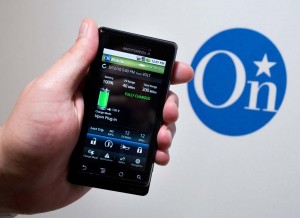A series of low-profile changes in the OnStar terms of service are generating a high level of anxiety among privacy advocates and others worried that the General Motors telematics service is turning itself into Big Brother.
The revisions mean that even after canceling service OnStar not only reserves the right to track a vehicle, collecting data such as speed and location, but also to sell that data to local governments, for example, or to companies that might want to use such information for targeted marketing.
“Under our new Terms and Conditions, when a customer cancels service, we have informed customers that OnStar will maintain a two-way connection to their vehicle unless they ask us not to do so,” the company confirmed in a press release.
For its part, however, OnStar officials insist the changes were made only for the most benign reasons. For one thing, it could permit GM to eventually use the OnStar link for remote vehicle diagnostics. Or the company could continue to link to a former subscriber to send emergency weather alerts, “such as tornado warnings or mandatory evacuations. Another benefit for keeping this connection “open” could be to provide vehicle owners with any updated warranty data or recall issues.”
Perhaps, but that’s not how skeptics see it, warning that the open-ended link is reminiscent of Big Brother, the all-seeing character in the dystopian world created by author George Orwell in his novel, “1984.”
Indeed, whatever the ultimate intent, the revised OnStar Terms and Conditions first of all require a subscriber to be aware of the changes and then proactively ask to have the data link terminated. If not, the company will be permitted to collect a vast array of motoring information, including the changing location of a vehicle, the speed it is being driven, driver seatbelt use, odometer readings and more.
And OnStar will maintain the right not only to use it for those seemingly benign purposes. It would have the legal right to sell the information to local municipalities which, for example, want to track speeds on local roads, or to monitor traffic. Corporations might also want to purchase the information to help plan marketing campaigns specifically targeting motorists who drive a certain route, for example, or clock an excess number of miles.
OnStar officials acknowledge this possibility, even though they say it is not something they’re now doing. And they insist that in the future, were that to happen, they’d aggregate data so as not to directly identify individual motorists.
The revelations underscore increasing concerns by privacy advocates who dread the potential problems associated with onboard telematics systems, especially those with two-way communications links.
What would prevent police officials, they ask, from demanding access to data not only from crime suspects but simply to monitor drivers who might be suspected of speeding?
And there are other concerns. Several groups have shown that it is possible to tap into onboard data links to not only access vehicle information but to connect to vehicle security functions. At one hacker conference a security group showed how to illegally start a motor vehicle without actually having the key. Meanwhile, there have been reports of a security “hole” in the Nissan Leaf’s telematics system that could allow unauthorized outside access to vehicle data.
With more and more cars now coming equipped with telematics systems the potential for abuse appears to be growing exponentially – whether it is contained in the terms spelled out by a provider like OnStar, or is the result of security breaches exploited by hackers.


I’ve always wondered when OnStar opens communication with you is there a little light that comes on so you know you are connected or can OnStar just listen in on you without you knowing it? Anyone?